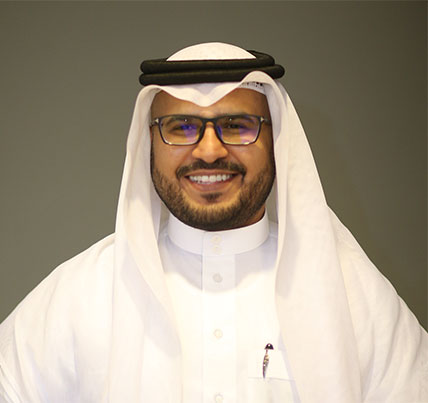
Mr Fahad Alajlan was appointed as the President of King Abdullah Petroleum Studies and Research Center (KAPSARC) in August 2021.
Prior to joining KAPSARC, Fahad held many senior roles across both government and the corporate world.
In 2020, Fahad was also appointed as head of the Circular Carbon Economy National Program, which aims to manage Saudi Arabia’s emissions while creating economic value.
In 2019, he held the position of Director of the Hydrocarbon Sustainability Program at the Ministry of Energy, where he was responsible for looking at the long-term energy trends plus their impact on global energy markets, with special emphasis on the demand for oil and gas.
Before this, Fahad worked at the Ministry of Economy and Planning, where he advised on energy markets, policy, industry trends, and the petrochemical sector. In addition, to the above responsibilities, his experience spans several senior roles in operations, corporate strategy, and investment planning, as well as mergers and acquisitions at Saudi Aramco, where he served for 15
years.
As KAPSARC president, Fahad will build on the momentum the Center has enjoyed while supporting the Saudi energy ecosystem in introducing the Circular Carbon Economy and build on the Think 20 (T20) engagement groups developed during the Saudi G20 2020 presidency.
Fahad holds a B.Sc. in Mechanical Engineering from North Carolina State University and an MBA from Stanford University in California
KAPSARC was founded as a non-profit institution for independent research into global energy economics and applied research in 2007. From its Riyadh base, in one of the world’s most vital energy-producing regions, KAPSARC develops economic frameworks to help achieve effective alignment between energy policy objectives and outcomes.
It brings together an international group of researchers with over 156 experts from more than 15 different nationalities. KAPSARC researchers collaborate with leading regional and international research centers, public policy organizations, and regional and local industry and government institutions to share knowledge, insights, and analytical frameworks.